9 Urdu ashaar / shayari (shers, couplets) by
Wali Dakni
1667-1707,
Aurangabad (Maharashtra)
Wali Dakni Biography
Wali Muhammad Wali, famously known as Wali Dakni, holds a special place in the history of Urdu literature as one of the earliest and most influential poets of the ghazal. Born in 1667 in Aurangabad in the Deccan region, he lived during a time when Persian dominated as the literary language of the Mughal court. Wali, however, pioneered the use of the emerging language “Rekhta,” which later evolved into modern Urdu, and brought it prestige by showing its poetic potential.
Wali traveled widely, especially to Delhi, where his poetry made a significant impact on the literary culture of North India. Before his arrival, Persian was considered the primary medium of refined poetry, but Wali’s verses in Urdu revealed its ability to express romance, beauty, and philosophy with equal grace. His ghazals captivated the audiences of Delhi and inspired a new wave of poets to adopt Urdu as their medium of expression.
He is often called the “Father of Rekhta” because his work gave legitimacy to Urdu poetry at a time when it was struggling to gain acceptance. His style combined the lyrical charm of Persian with the local idioms and expressions of Hindavi, making his poetry both elevated and relatable. Themes of love, beauty, longing, and devotion run strongly through his ghazals, and his language displayed elegance without losing simplicity.
Wali Dakni’s contribution is so central that many later greats of Urdu literature, including Mir Taqi Mir and Mirza Ghalib, are seen as part of the tradition he helped establish. His Diwan is considered a milestone, representing the flowering of Urdu ghazal in its early phase.
He passed away in 1707 in Gujarat. His death is believed to have occurred during a communal riot, but his legacy as the pioneer of Urdu ghazal remains immortal. Wali Dakni is remembered not only as a poet but as the one who gave Urdu its first true literary voice, setting the stage for centuries of poetic brilliance.
1 / 9: Wali Dakni
tishna-lab huun
sharbat-e-deedaar ka
i do not long for
the heavenly fountain of kausar
my lips are parched for
the sweet nectar of your sight
0
0
1
40
2 / 9: Wali Dakni
taa qayaamat khula hai
baab-e-sukhan
the path to fresh ideas
is never sealed shut
the door to new expression
is open till doomsday
0
0
1
43
3 / 9: Wali Dakni
mard ka eitbaar
khoti hai
poverty robs
all seasons of their beauty
and it strips man
of his dignity and trust
0
0
2
24
4 / 9: Wali Dakni
aah ko dil ke upar
tesha-e-farhaad kiya
your memory today
oh, my sweet-gliding love
turned my sigh into
farhaad's axe upon my heart
0
0
0
42
5 / 9: Wali Dakni
dil pe mere sadaa
udaasi hai
from the sorrow of my
beloved's detachment
my heart remains forever
cloaked in grief
1
0
0
21
6 / 9: Wali Dakni
jab khayaal-e-sanam
charaagh hua
why wouldn't
the lovers' hearts be radiant
when the thought of the beloved
lights up like a flame
0
0
0
24
7 / 9: Wali Dakni
kya haqeeqi o
kya majaazi ka
the best occupation
is that of love
whether divine or worldly,
doesn't matter
0
0
0
35
8 / 9: Wali Dakni
muddat huyi palak se palak
aashna naheen
o radiance of my soul and sight,
while longing for you
my eyes haven't closed
in ages
0
0
2
36
9 / 9: Wali Dakni
use zindagi kyoon
na bhaari lage
one who is struck
by love's sharp arrow
how could life
not feel heavy to them?
0
0
0
34
Featured Shaayars
553 Shaayars
Featured Themes


Alfaaz Ki Mehfil is a curated space for timeless poetry celebrating words, emotions, and the enduring beauty of expression. From classic Urdu couplets to modern reflections, it brings together generations of poetic voices that speak of love, longing, hope, and the human soul.
Quick Links


